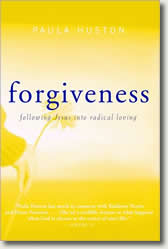Spiritual Confidence
 We didn’t have a television—by choice—for nearly twenty-five years. Then my in-laws moved into an assisted-
living apartment, and we inherited their massive and somewhat antiquated TV. When that broke down during the
middle of the presidential campaign last spring, not only did we race out and
get ourselves a flat screen, we took the plunge into cable service besides.
We didn’t have a television—by choice—for nearly twenty-five years. Then my in-laws moved into an assisted-
living apartment, and we inherited their massive and somewhat antiquated TV. When that broke down during the
middle of the presidential campaign last spring, not only did we race out and
get ourselves a flat screen, we took the plunge into cable service besides.
Thus, we had front row seats during the unfolding of the economic meltdown last fall. We watched with concern as the stock market reeled its way through its darkest hours in decades. At first we kept track of the situation through the nightly news; then, as things became increasingly dire, Mike snapped on the TV as soon as we woke up. By the end of those three memorable weeks, we were obsessively checking the financial reports at noon besides. And we don’t even own stocks.
What was happening to us? Like most Americans, we’d been swept into a stew of anxiety about the fate of our country and ourselves. The worse the news, the more compelled we were to listen to it. However, soon it dawned on us that even though we personally had not yet been affected by what was happening in the global financial markets, our lives had been thrown out of whack. We weren’t sleeping well, we were snapping at one another, and we were growing increasingly skittish about the condition of the bank that housed our meager savings account. We were, in short, behaving as normal human beings behave when faced with any serious threat.
Yet though our response may have been normal, it was not necessarily healthy. The revelation was a long time coming, but finally it came: persistent anxiety was weakening us. Somewhere in all the hoopla over what should be done about the global financial crisis, we had lost our spiritual footing and fallen into distress. And in that state, we were incapable of reading the situation clearly, for chronic anxiety paints a distorted picture of reality.
More, it adds an unnecessary layer of high drama to difficult situations. And like all flamboyant stage presences, it draws attention away from the real issues and to itself. As if this weren’t enough, anxiety is also cannibalistic, feeding on itself and generating enormous amounts of chaotic energy that can quickly become destructive. If we do not recognize and deal with anxiety’s power to misdirect us, we eventually find ourselves lost in a funhouse maze. Perhaps this is why some of Jesus’ most memorable words are directed at those of us who live in chronic fear about the future.
In the Book of Luke, for example, he addresses our understandable anxiety about surviving in a highly competitive culture: “Notice how the flowers grow. They do not toil or spin. But I tell you, not even Solomon in all his splendor was dressed like one of them. If God so clothes the grass in the field that grows today and is thrown into the oven tomorrow, will he not much more provide for you, O you of little faith?” (Luke 12:27-28). God is with you, Jesus is saying, and he knows exactly what you need, so why waste your energy in fruitless stress and worry?
He also challenges our mistaken notion that security can be attained if we simply amass enough wealth. Instead of spending our lives in pursuit of money, he says, we should look beyond the ephemeral to what will last forever: “Provide money bags for yourselves that do not wear out, an inexhaustible treasure in heaven that no thief can reach nor moth destroy. For where your treasure is, there your heart will be also.” (Luke 12:33-34). Not only does the longing for wealth distract us from our true purpose, he tells us, but that which we yearn for determines what kind of person we become.
Finally, even when we’re not motivated by unrealistic dreams, we can still feel anxiety about our ability to provide the basic necessities of life. What if we lose our job or our life savings? What if we lose our house to foreclosure? Such fears are keeping many of us awake at night these days, with good reason. Times are uncertain and nobody can predict the future. Again, however, Jesus assures us that if we are focused on the right things, nobody can deprive us of our true security: “Do not work for food that perishes but for the food that endures for eternal life, which the Son of Man will give you.” (John 6:27).
For self-reliant, successful people who have fallen on hard times, these words can sound naïve, or worse, irresponsible. Is Jesus telling us we should stop all our striving and let others take care of us? Is he saying that it is okay to be lazy and immature rather than adult and responsible? No: Jesus never meant that we shouldn’t work hard—only that we should direct those efforts in the right way. The first step in this process is to admit that self-reliance—a quintessentially American value to be sure—is nothing but a romantic myth. We are not, after all, masters of our own destinies. On the contrary; we thrive instead on the beneficence of a loving creator.
Throughout the Christian ages, countless men and women have proven that it’s possible to depend solely on the providence of God. The old monks of the desert, for example, literally stripped themselves of earthly goods and vanished into the wilderness, where they found it far easier to rely on God than when they were surrounded by the trappings of civilization. They wore the most basic clothing, subsisted on bread and water and a few vegetables, lived in caves, owned nothing.
True, some of them broke under the regimen, but others went on to become famously holy people, magnets for pilgrims throughout the known world. Some were healers, some miracle workers, some clairvoyant readers of hearts: all were in some way extraordinary. Seekers traveled on foot or camel-back for weeks under the harshest conditions in hopes of getting a simple “word” from these desert fathers and mothers that might transform their lives.
The ancient belief was that supernatural qualities like these only appeared in those who were absolutely simple and absolutely dependent on God. By relinquishing anxiety over future well-being and turning their backs on fruitless worry, their vision became steadily clearer and more focused. They were not easily distracted from their purpose or drawn off into lesser concerns. Their hearts had become pure, and thus they could peacefully handle whatever happened to them next, whether that be sickness, sorrow, or attack by evil-doers.
In our own case, it was one thing to realize that our obsessive news-watching was destroying our hard-won peace of mind, and quite another to stop what we were doing. Thankfully, ancient spiritual wisdom provides a rich storehouse of time-tried practices and psychological insights that even today can help people change. Ascetical disciplines such as solitude, silence, fasting, and chastity work because they force us to look at old habits with new awareness. Not only do we become cognizant of the underlying belief system that provided the logic for our old behavior, but we begin learning new ways of acting before we have fully let go of the thought patterns of the past.
We deliberately began pulling away from the daily drama of the financial news, which was keeping our anxiety fanned and directing all our energy toward a situation over which we had no control. First we cut out the noon-time check-in, then the morning broadcast. By reducing the amount of time we spent undergoing intense media experiences that kept refocusing us on the problem, we began to calm down a bit and think about other things. Certainly, the situation was serious, but it did not warrant our undivided attention for weeks at a time. The rest of life was unfolding around us, whether we sat glued to the news or not. The deliberate cessation of what had become a destructive activity was the first step in freeing ourselves from obsessive anxiety.
Good ascetical practices, however, do not merely deprive us of that which we are used to but also seek to substitute what is spiritually healthy for what is harming our ability to find God in everything. In our case, this meant replacing worry with prayer. When we pray for those who are suffering—in this case, for those who have lost jobs and homes—we ally ourselves with our hurting brothers and sisters and lend them the spiritual strength that may have been drained out of them because of their circumstances.
More, we join ourselves with Jesus in his work of healing. Persistent, daily prayer at this level eventually shifts our perspective from one of frightened worry to one of spiritual confidence in the providence of God. We find that we are no longer being dominated by anxiety but are now experiencing a spiritually energetic response to trouble.
In this
place, we are open to whatever God wishes us to do; we are no longer acting out
of anxious self-interest but instead out of deep faith that, as the mystic and
hermit Julian of Norwich once put it, “All will be well, and all will be well,
and every manner of thing shall be well.”
When Jesus pointed to the splendor of humble lilies in the field as proof
of God’s loving providence, he was pointing us, I believe, toward the same
revelation.
Copyright © 2009 Paula Huston

